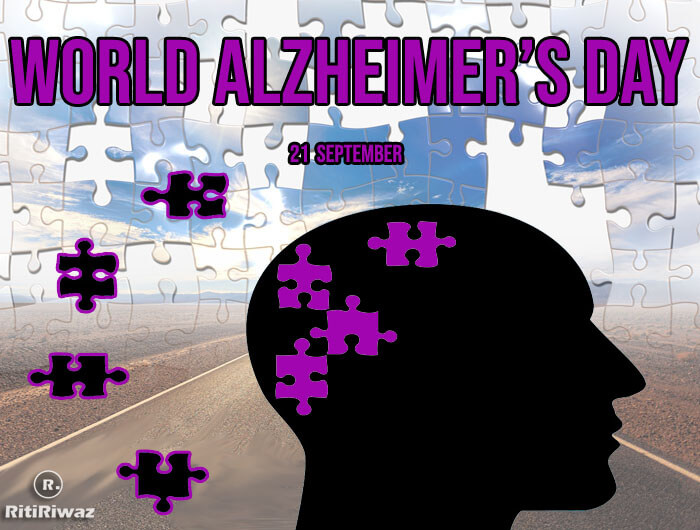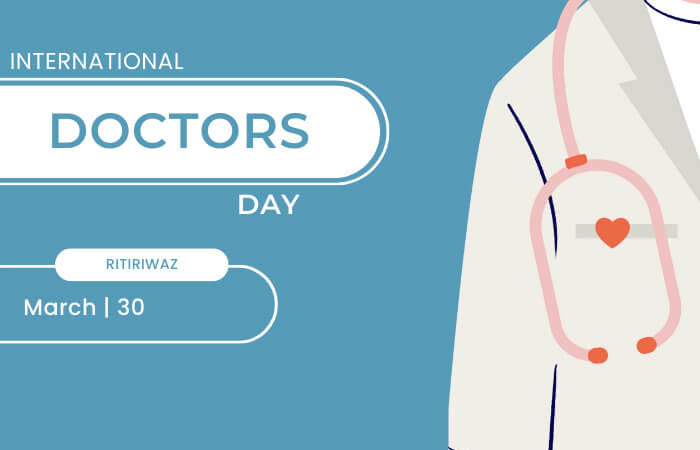World Alzheimer’s Day – 21 September

World Alzheimer’s Day is observed on 21st September while the month of September is Alzheimer’s Month. This campaign was launch in September 2012, with the main aim to raise public awareness of Alzheimer’s disease. However, the stigma and lack of information surrounding the disease still remains to be a global issue.
World Alzheimer’s Day is an international campaign to raise awareness and highlight issues faced by people affected by dementia. One of the first steps toward raising awareness is educating people on important facts concerning the progression of the illness and the number of older adults that it affects around the world.
What is Alzheimer’s?
Alzheimer’s is a progressive disease that impairs memory and other mental functions. It is the most common form of dementia that generalizes memory loss and loss of other essential cognitive abilities that are serious enough to interfere with an individual’s daily life.
The earliest sign is having trouble remembering new information because it affects the part of the brain associated with learning first. Unfortunately, there is no way to prevent, cure, or even slow down Alzheimer’s.
What causes Alzheimer’s disease?
Alzheimer’s disease is caused by the abnormal build-up of proteins in the brain. The build-up of these proteins — called amyloid protein and tau protein — leads to cell death.
The human brain contains over 100 billion nerve cells as well as other cells. The nerve cells work together to fulfill all the communications needed to perform such functions as thinking, learning, remembering, and planning. Scientists believe that amyloid protein builds up in the brain cells, forming larger masses called plaques. Twisted fibers of another protein called tau form into tangles. These plaques and tangles block the communication between nerve cells, which prevents them from carrying out their processes. The slow and ongoing death of the nerve cells, starting in one area of the brain (usually in the area of the brain that controls memory) then spreading to other areas, results in the symptoms seen in patients with Alzheimer’s disease.
Symptoms:
- Trouble remembering new information
- Confusion with time and location
- Difficulty completing familiar tasks
- Difficulty with problem-solving
- Misplacing items
- Poor judgment
- Withdrawal from social activities
- The trouble with images and spaces
- Difficulty with words
- Unfounded emotions
What are some risk factors for Alzheimer’s disease?
Risk factors for the development of Alzheimer’s disease include:
-
Age. Increasing age is the primary risk factor for developing Alzheimer’s disease.
-
Genetics (runs in families). There is a certain gene, apolipoprotein E (APOE) that is associated with late-onset Alzheimer’s disease. Other genes have been associated with early-onset Alzheimer’s disease.
-
High blood pressure
-
High cholesterol
-
Diabetes
-
Smoking
-
Obesity
Consider these tips for living with Alzheimer’s or other dementia:
-
Educate yourself about Alzheimer’s and learn all you can about what you can expect.
-
Allow time to adjust to your diagnosis and take the time you need to feel sad or grieve current losses or the expectation of future changes.
-
Build a care team assembling a network of family and friends geared to help and support you.
-
Join an Alzheimer’s Association support group where persons exchange information as well as provide emotional support.
-
Plan for your future by making legal and financial plans so you can participate in key decision-making.
-
Identify sources of stress and try to reduce them while getting regular medical checkups, eating well, exercising, and proper rest when you can.
-
Keep your body and mind active with social and physical activities you’ve always loved or try something new.
-
Raise your voice as an advocate or raise awareness and funds through events.
Despite the mistaken belief that dementia may be an inevitable part of aging, you may be able to take steps to prevent this from occurring. As a general rule of thumb, it appears that what may be good for your heart may be good for your brain. This means it can be a good thing to remain physically active and follow a healthy diet. Continue to challenge your brain with new activities. Enjoy social activities. Avoid things like smoking. High blood pressure, high cholesterol, diabetes, and obesity can all contribute to developing dementia later in life. If you have heart disease, seek out effective treatment as soon as possible.
Suggested Read: Important Days In September






